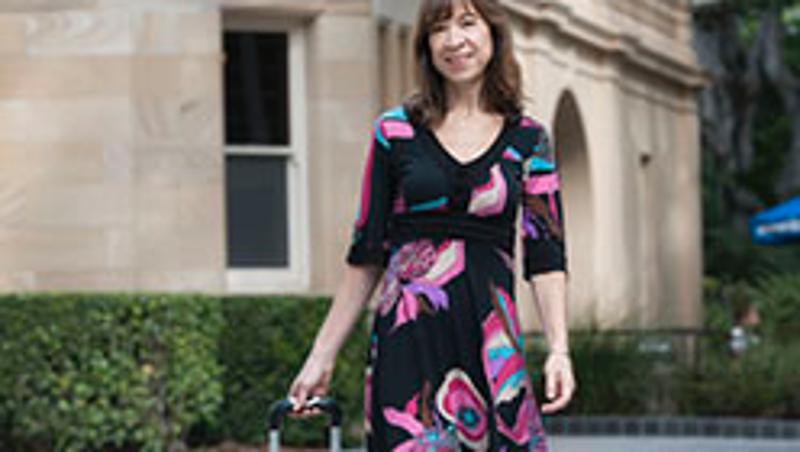
Solo travellers don't go alone because they have to, they do it because they want to, a new QUT study has found.
Professor Constanza (Connie) Bianchi, from QUT Business School, said there were a growing number of people who preferred to travel alone, despite having family and friends.
She said solo travellers were choosing freedom, uncompromised fun and meeting new people over the desire to have a companion to share their experiences.
In a study published in the International Journal of Tourism Research, Professor Bianchi looked at the drivers of satisfaction and dissatisfaction for solo travellers, given the growing numbers of holiday-makers travelling alone.
"Research shows solo travel is the fastest-growing tourism segment and Australian figures support this with solo traveller numbers increasing by almost 20 per cent between 2007 and 2011," she said.
"Despite this increased demand, travel offerings are generally targeted at couples or families.
"Understanding tourist satisfaction and dissatisfaction, especially in this growing but not very well researched group, will help tourism operators ensure solo travellers are not being ignored."
Professor Bianchi said although most study participants had family and friends, they chose to travel alone because they enjoyed it.
"According to them, it was a chance to indulge themselves fully," Professor Bianchi said.
"For example, one solo traveller said: 'I thought that going by myself would be the best way to make sure that I got what I wanted out of the holiday without having to ... gosh this sounds awful ... without having to consider anybody else and what they might want to do'."
Professor Bianchi said other motivations of travelling solo were feeling free, the possibility of meeting new people and the opportunity for self-discovery.
"One participant said: 'You discover a lot about yourself and you learn to be at peace with your inner monologue due to time spent alone and the challenges you must overcome alone'," Professor Bianchi said.
But she said with the good comes the bad, and unfortunately for many solo travellers the extra costs and single supplements along with safety concerns were perceived as the main disadvantages.
"For example one participant said: 'Having to pay for stuff that really you're not benefitting from, that's a real bugger for me'."
"Other constraints when travelling solo included the lack of convenience of having someone to take care of or help with luggage and the perceived annoyance of restaurants having to serve solo eaters," she said.
"However, while the findings highlight some constraints for travelling alone, it also found for solo travellers, the positives outweighed the negatives."
Professor Bianchi said the findings highlight the need for destination managers and tourism operators to offer special packages for solo travellers.
"Proper design of solo traveller experiences and recognising the different motivations of solo travellers will not only lead to greater satisfaction, but the potential of tapping into this high-growth market," she said.
The paper titled Solo Holiday Travellers: Motivators and Drivers of Satisfaction and Dissatisfaction, is available at http://onlinelibrary.wiley.com/doi/10.1002/jtr.2049/abstract
Media contact:
Sandra Hutchinson, QUT Media (Tue, Wed), 07 3138 9449 or media@qut.edu.au
After hours, Rose Trapnell, 0407 585 901


